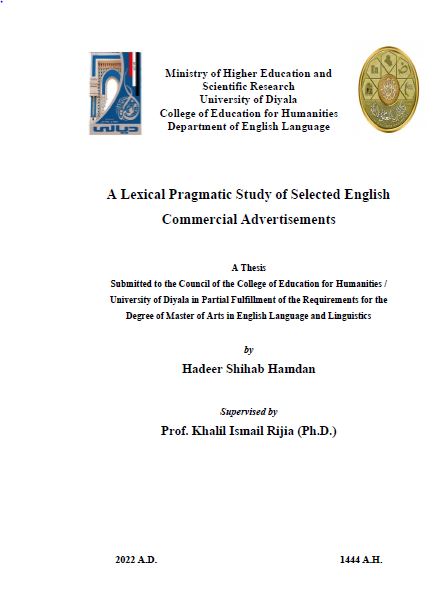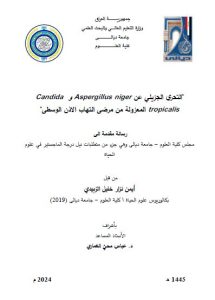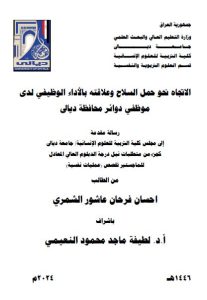Abstract
The advertisements (henceforth ads) have a vital role in the world of commercialization if they are employed in a suitable manner. Commercial ads have become an integral part of our daily lives since the advent of the internet. Accordingly, there still exists an obvious gap to be filled by approaching these ads from the perspective of Lexical Pragmatics (henceforth LP). The problem addressed in the current study is simply represented by the sort of uncertainty that exist over the type of LP processes employed by the designers of these ads and the strategies they employ to influence their consumers and get them involved into these ads. The study intends to investigate the LP processes employed by the advertisers to construct their intended meanings and messages.
This study is based on the hypotheses that, firstly, commercial ads as an act of communication have their own distinctive devices that play a pivotal role in communicating the intended messages to the target audience. Secondly, the advertisers depend on lexical narrowing and lexical broadening processes to convey their ideas and intended messages. Thirdly, by using various LP processes, the advertisers express the intended meaning in their ads.
To achieve the aims of the study and verify its hypotheses, two types of procedures have been adopted: Theoretical and practical. The theoretical procedures consist of presenting a theoretical framework of LP, including a brief historical outline, its basic issues, its theses, and its processes, and inspecting an introduction to ads, its style and functions, its language, as well as displaying some of the related previous studies. The practical procedures consist of selecting twenty five commercial ads from different Google websites, the Pinterest application, and social media platforms like Facebook and Instagram. The selected commercial ads have been analysed in the light of an eclectic model based on Wilson and Carston (2007) and Blutner (2011). The analysis of the selected ads has shown that the ad makers depend on lexical narrowing processes to specify the denotation of their ads in order to convey the intended meanings and on lexical broadening processes to attract the attention of the customers.
The study ends up with a number of conclusions, recommendations and suggestions for further research based on the study’s findings.





